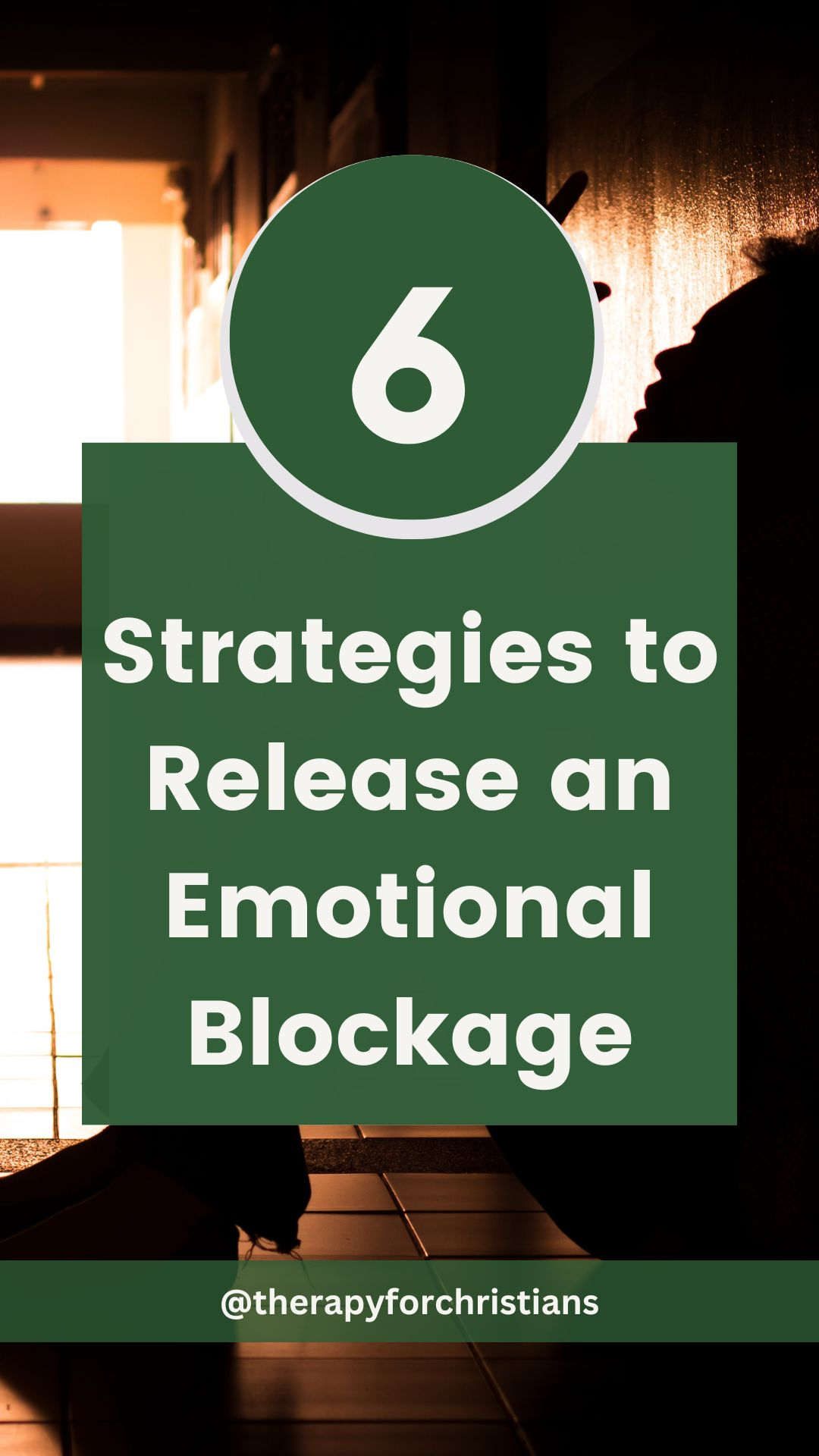
![]() Have you ever bottled up your emotions so others have no idea how you really feel? Do you know someone who does that? If you answered yes to any of those questions, you are not alone.
Have you ever bottled up your emotions so others have no idea how you really feel? Do you know someone who does that? If you answered yes to any of those questions, you are not alone.
Thousands of people bottle up their feelings every day thinking it's a good thing for them and for the people around them, but it's not. It's not a good thing to do because bottling up your emotions can be really harmful to your mental and physical health.
See, when you hide your feelings and forget to handle them, they can show up in various different ways. This often leads to symptoms like anxiety, depression, headaches, and more. It can also affect your relationship with God and with others.
In this post, we'll explore the signs, the causes, and the consequences of bottling things up. We'll also provide useful tips on how to release emotional blockages and heal from them in the healthiest of ways. It's important to remember that it's okay to feel vulnerable and seek help when you need it. So if you're ready to be free from your bottled-up emotions or you'd like to know how to help someone else, keep reading.

What Are The Signs Of Bottling Up Emotions?
Knowing the signs of bottling up emotions is extremely important.
It's important because when you recognize them early, you can do something before they escalate into more serious issues.
Signs of bottling up emotions include feeling irritable, having a hard time sleeping, experiencing unexplained aches and pains, and feeling detached from others.
You may also find yourself engaging in harmful coping mechanisms like overeating, substance abuse, or lashing out in anger.
People who bottle up their emotions may also have a problem expressing themselves and having tough conversations. This can lead to a buildup of unspoken emotions, making it even harder to manage them effectively.
What Causes Someone To Bottle Up Emotions?
There are several reasons people bottle up their emotions. One common reason for someone to bottle up their emotions is the fear of rejection or being judged by others.
Another common reason is the fear of being vulnerable or seeming weak. It's sad to think about but society has conditioned us to think that being emotional is a negative trait. This conditioning may cause us to hide our emotions in order to appear strong and in control.
Additionally, past experiences can influence how we express our emotions. People who grew up in conditions where emotions were not expressed or were met with negative reactions may form a habit of masking their emotions. Traumatic experiences can also lead to hiding emotions, as it can be too overwhelming to confront and express them.
What Happens When You Bottle Up Your Feelings?
Bottling up your feelings can have negative effects on your health. The effects are not just mental but physical and spiritual as well. Recognizing and addressing any patterns in this area will enable you to maintain a healthy and balanced life overall.
Here are a few things that happen when you bottle up your feelings. If you recognize any of them in your own life or in the life of a loved one, choose to recognize and address them immediately:
Increase in Mental Health Symptoms
Bottling up emotions often lead to mental health issues like depression and anxiety.
See, when emotions are hidden or overlooked, they can build up and become overwhelming. This can lead to feelings of sadness, hopelessness, and worthlessness, which are all symptoms of depression.
Anxiety can also be a consequence of bottled-up emotions. This happens through the constant sense of worry and unease that comes from not dealing with underlying feelings.
Maladaptive Coping skills
Bottling up emotions can also lead to maladaptive coping skills in some people. These coping skills may bring temporary relief, but they ultimately have harmful consequences.
Examples of maladaptive coping skills include substance abuse, self-harm, procrastination, and avoidance. Over time, these behaviors can become habits, making it even tougher to handle underlying emotional issues.
Increase in Physical Symptoms
A common question we as therapists get is, "can you get sick from bottling up your emotions"? And the answer is yes. Weight fluctuations, headaches, and digestive issues are just some of the physical symptoms of emotional stress.
See, when we suppress our feelings, it can lead to an increase in stress hormones like cortisol, which can then cause weight gain or loss.
Tension headaches are also a common sign of emotional stress, as well as gastrointestinal issues such as nausea, bloating, and stomach pains. These physical symptoms can also aggravate emotional stress, creating a vicious cycle of stress and physical distress.
Distance from God
When we suppress our feelings, we usually don't want to talk to anyone about it, not even God. This inability to express our feelings to Him eventually makes us feel like we can't approach Him. We might start to doubt His love for us and even question His goodness.
Our faith becomes weaker, and we start to feel like God has abandoned us. However, it is important to remember that God wants us to bring all our concerns and emotions to Him.
The Bible encourages us to cast our anxieties on Him because He cares for us (1 Peter 5:7). So remember that you can pour your heart out to Him, even when you don't have the words to say. You can find comfort and peace in His presence.
Distance from Others
Bottling up your emotions sometimes drives you to push away the people you care for the most. This often leads to feelings of isolation and loneliness, which can have negative effects on your mental health.
Bottling up your emotions may also make it difficult to communicate effectively, which can cause misunderstandings in your relationships, further adding to the feeling of distance from others.

How Do You Release An Emotional Blockage?
There are many ways to release an emotional blockage. One way to release emotional blockages is to spend time in prayer and ask God to reveal what needs to be released. Here are 6 more:
Acknowledge and Respond to Your Feelings
The first step to releasing emotional blockages is recognizing and responding to your feelings. This means identifying and validating your emotions, before responding to them in a healthy way.
Practicing mindfulness techniques or journaling is a great way to do this. These practices will help you gain greater insight into your emotions and how they affect you.
It is also important to avoid suppressing or dismissing your feelings, as this will only lead to further emotional blockages. Instead, work on developing a healthy relationship with your emotions and positively responding to them.
Make time for self-care
Self-care is an essential aspect of releasing emotional blockages. It involves immersing yourself in activities that promote physical, mental, and emotional well-being. This includes getting enough sleep, eating well, exercising often, practicing relaxation techniques, and engaging in hobbies or activities that bring you joy.
Prioritizing self-care and making time for it is extremely important. This must be done even if it means setting boundaries and saying no to certain commitments. By taking care of yourself, you will undoubtedly reduce the impact of emotional blockages on your life.
Identify you Triggers
Identifying your triggers is a vital step toward releasing emotional blockages. Triggers are circumstances or events that cause an emotional response in you. It's necessary to pay attention to them as they can help you understand the root of your emotions. Once you identify your triggers, you can take steps to avoid or manage them in a healthy way.

Journal
Journaling can really work wonders for your mental health. I mentioned it as a good exercise when recognizing and acknowledging your feelings, but it deserves its own spot in this post. This is because journaling itself is a great way to release emotional blockages. By writing down your thoughts and feelings, you can get a better understanding of what's causing the blockage and begin to work through it. Journaling can also provide a safe space for you to express yourself without fear of judgment or negative consequences. Furthermore, writing down your emotions can be a cathartic experience and can help you process and release the emotions that have been bottled up.
Increase your Self-Awareness
Increasing self-awareness involves paying attention to your emotions, thoughts, and behavior. When you pay more attention to these things in different situations, you become more aware of who you are and what triggers you. This can help you find the root cause of your emotional blockages and it can also help you recognize patterns in your behavior that may be contributing to these blockages.
Mindfulness practices such as meditation, deep breathing, and prayer can be effective in increasing self-awareness. Working with a therapist or counselor can also help increase self-awareness and develop strategies to release emotional blockages, which brings me to the next point.
Engage in a Therapeutic Process
Engaging in a therapeutic process with a qualified mental health professional is a great way to release emotional blockages. A therapist will provide a safe and non-judgmental space for you to explore and process your emotions. Through various therapeutic techniques such as talk therapy, CBT, and mindfulness practices, you'll learn healthy coping mechanisms, improve your self-awareness, and work towards resolving emotional blockages. A therapist can also provide advice and support in recognizing and addressing any underlying issues that may be contributing to your emotional blockages. )-(1).jpg)
Final Thoughts on Bottling Up Your Emotions
Bottling up your emotions can have devastating consequences on your well-being.
As Christians, we are called to cast all our cares upon the Lord. We are not meant to carry the burden of our emotions alone but to lean on God instead. By releasing our emotional blockages and turning to God, we can experience greater freedom, quicker healing, and closer intimacy with God and others. Through prayer, self-care, and seeking therapeutic support, we too can learn to express and manage our emotions in healthy ways.
As you draw near to God and allow Him to work in you, you’ll find freedom from the bondage of bottled-up emotions. And you will finally experience the abundant life that Christ promised (John 10:10). So choose to stop bottling up emotions today and let God finish the good work He has started in you. Your freedom is within your reach.
Before you leave, we would appreciate it if you helped us spread the word by sharing, tweeting, pinning, etc. this post.
About the Author:
 Corine Williams, Ph.D. is Clinical Psychologist that is currently seeing clients in the States of Maryland, New Jersey, and New York. You can find out more about her practice by visiting www.therapyforchristians.com/corinewilliams. In addition to providing individual therapy, Dr. Williams is also passionate about writing books and designing merchandise that educate, uplift, and normalize mental health subject in the Christian community. You can find out more about her at www.booksbycorine.com or by visiting her amazon profile here: https://www.amazon.com/Corine-Hyman/e/B00AWZ5FL2
Corine Williams, Ph.D. is Clinical Psychologist that is currently seeing clients in the States of Maryland, New Jersey, and New York. You can find out more about her practice by visiting www.therapyforchristians.com/corinewilliams. In addition to providing individual therapy, Dr. Williams is also passionate about writing books and designing merchandise that educate, uplift, and normalize mental health subject in the Christian community. You can find out more about her at www.booksbycorine.com or by visiting her amazon profile here: https://www.amazon.com/Corine-Hyman/e/B00AWZ5FL2
Help us increase mental health awareness in the Christian community by donating through our paypal link here: www.paypal.com/therapyforchristians, joining our mailing list by clicking below, or join our provider list here: Provider listing
Disclaimer: the information, including but not limited to, text, graphics, images and other material contained on this article are for informational purposes only. No material on this site is intended to be a substitute for professional medical advice, diagnosis or treatment. If you are looking for a Christian counselor near you, please check out our directory located here: Christians Therapist Near Me
.png)














